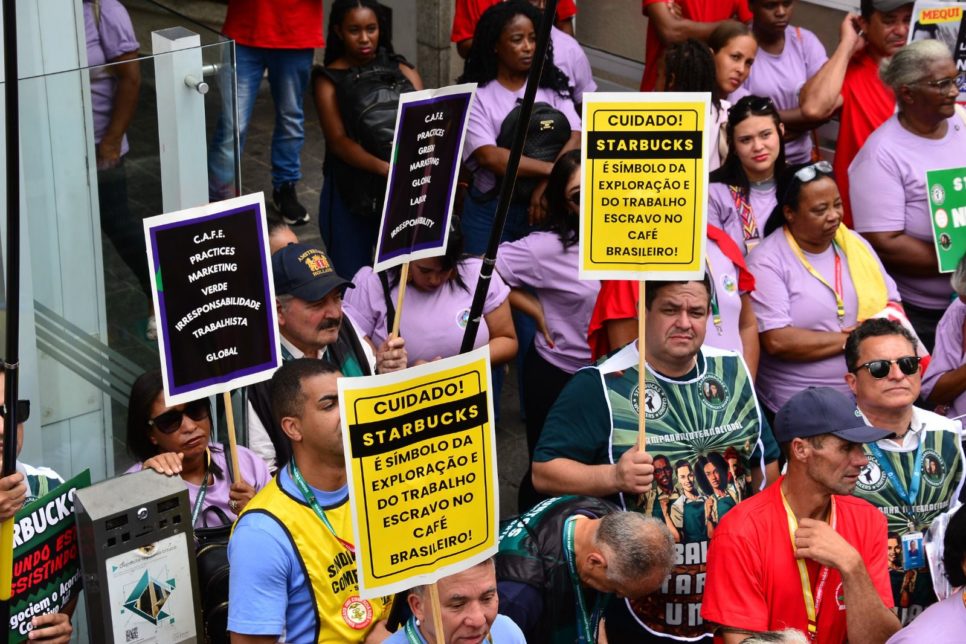We need to talk about torture
At a seminar in Rio de Janeiro, public officials, researchers and civil society discuss solutions to address violence committed by government agents
%20seminario%20tortura_ENG.jpg)
One of the main instruments for preventing and combating torture in Brazil – custody hearings, which enable detainees to see a judge within 24 hours of their arrest – are being undermined by representatives of the justice system, according to the research Shielded Torture, which was published in February.
The study conducted by Conectas reveals that judges, prosecutors and public defenders overlook, trivialize and even rationalize episodes of police violence reported by detainees in custody hearings.
In order to discuss what needs to be done to change this situation, the seminar The Justice System in Combating Torture: what progress can be made in handling cases of violence committed by government agents? will be held in the auditorium of the Rio de Janeiro State Public Defender’s Office (Av. Marechal Câmara 314, 2nd floor) at 2 pm this Friday, June 9.
Read more
The event will be opened by Rafael Custódio, coordinator of the Justice program at Conectas, and the study will be presented by the researcher Carolina Diniz.
Immediately afterwards, the topic will be debated by Eliane de Lima Pereira, a prosecutor and advisor on human rights and minorities at the Rio de Janeiro State Public Prosecutor’s Office; Maria Tereza Donatti, a judge at the Rio de Janeiro State Court; Daniel Lozoya, a member of the human rights center of the Rio de Janeiro State Public Defender’s Office; Ignácio Cano, coordinator of the Laboratory for the Analysis of Violence of the Rio de Janeiro State University; and Henrique Apolinário, adviser for the Justice program at Conectas.
The debate will be moderated by Roberta Fraenkel, a public defender and deputy coordinator of the human rights center of the Rio de Janeiro State Public Defender’s Office.
Click here to confirm your presence.
 “Police violence when arrests are made is nothing new in Brazil, but this research provides solid evidence that the violence is ignored – and sometimes defended – by the actors in the Justice System, which is extremely serious and in violation of national and international laws and standards,” said Rafael Custódio, coordinator of the Justice program at Conectas.
“Police violence when arrests are made is nothing new in Brazil, but this research provides solid evidence that the violence is ignored – and sometimes defended – by the actors in the Justice System, which is extremely serious and in violation of national and international laws and standards,” said Rafael Custódio, coordinator of the Justice program at Conectas.
“Shielded Torture”
Combating torture and mistreatment is one of the main goals of the custody hearings, which ensure that people detained by the police are presented before a judge within 24 hours of their arrest. The hearings were introduced in São Paulo two years ago by the CNJ (National Justice Council) to comply with the American Convention on Human Rights, which was ratified by Brazil in 1992.
 Before the introduction of these hearings, which are now in place in all Brazil’s state capitals, pre-trial detainees would spend months in prison awaiting an evidentiary hearing in their case. By that time, any physical marks and evidence of torture had disappeared, making it difficult to investigate and prosecute the perpetrators.
Before the introduction of these hearings, which are now in place in all Brazil’s state capitals, pre-trial detainees would spend months in prison awaiting an evidentiary hearing in their case. By that time, any physical marks and evidence of torture had disappeared, making it difficult to investigate and prosecute the perpetrators.
According to the research “Shielded Torture”, the custody hearings have done little to change this situation. The study analyzed hundreds of hearings held between July and December of 2015 in the Criminal Courthouse of Barra Funda, in São Paulo, and monitored the outcomes of the reports of torture until May 2016. It found that in a third of the hearings, the judges did not ask the detainees about the occurrence of violence when they were arrested, even when they had marks on their bodies.
Among prosecutors, the lack of interest was even greater: in 80% of the hearings in which there were reports of torture, the representatives of the Public Prosecutor’s Office did not ask any questions about the violence. In fact, when they did intervene, it was mostly to discredit the testimony of the detainees (60%). And 42% of the time, the prosecutors justified the aggression or insinuated that the detainee was lying.
The study also analyzed the conduct of the judges in each of the cases of violence, which led to another alarming conclusion: many reports of torture – together with information on the victims – are being forwarded to the very same police brigades where the suspected officers work, placing the life of the detainees who made the complaints at risk. Of all the 393 cases analyzed in the research, only one resulted in an inquiry being opened to investigate the conduct of the officers.
Event:
Seminar | The Justice System in Combating Torture: what progress can be made in handling cases of violence committed by government agents?
Date: June 9, 2017
Time: 2 pm
Place: Auditorium of the Rio de Janeiro State Public Defender’s Office (Av. Marechal Câmara 314 – 12th floor)






